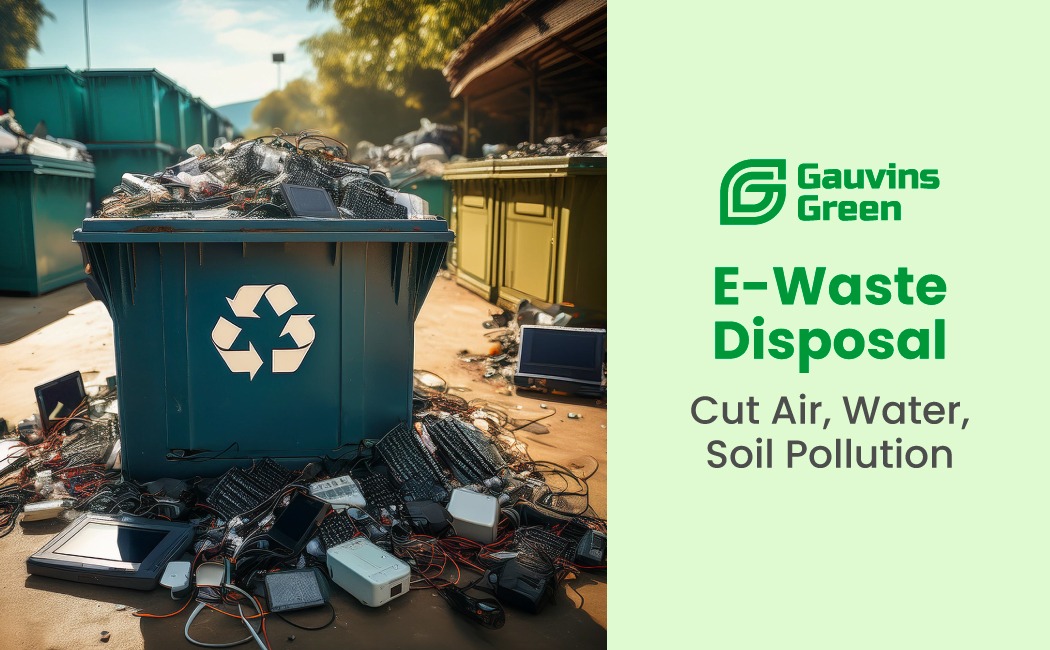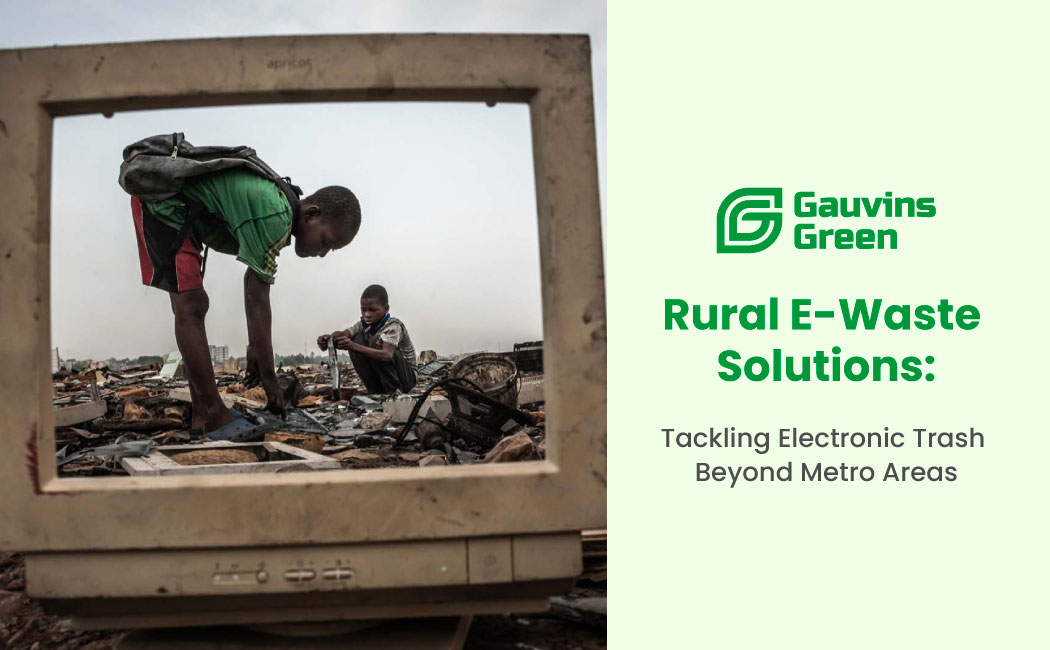|
Getting your Trinity Audio player ready...
|
In a recent report experts found that as technology advances, the need for proper e-waste disposal is increasing faslty. To prevent the generation of electronic waste from the unavoidable disposal of old or damaged devices is necessary. Unfortunately, the improper disposal of e-waste is booming, and also increasing various environmental problems. If this problem is not managed properly, all types of electronic waste can release harmful substances, and cause pollution that affects the air, soil, and water. In this blog, we will discuss how different types of pollution fight against e-waste disposal and how e-waste recycling is important ecologically and economically.
Table of Contents
ToggleWhat is E-Waste Disposal?
The term “e-waste disposal” refers to the process of the safe and responsible operation of scrap electronic devices. This process involves collecting and sorting e-waste items, erasing the data safely, recycling valuable materials like; zinc, copper, metal, silver, or gold, etc., and proper management of non-recyclable components to reduce environmental impact.
Types of Pollution Caused by Improper E-Waste Disposal
Electronic waste causes harmful effects on the environment and pollutes air, water, and soil as well. Almost all materials in e-waste can cause pollution if not disposed of correctly. Here are some of the most common types of pollution caused by improper management of electronic waste:
Air Pollution:
Incineration or open-air burning of e-waste releases toxic chemicals into the atmosphere. Burning plastics in e-waste, for example, may emit dioxins and furans, which pose a threat to environmental and human health. Such toxic chemicals lead to air pollution, which increases the chances of respiratory diseases among communities living nearby.
Soil Pollution:
E-waste disposal in forests and landfills can result in the leaching of harmful chemicals into the soil. These elements include lead, cadmium, and mercury, which will accumulate in the various electronic devices and seriously pollute the soil, leading to loss of fertility and thus negatively affecting local agriculture. This, in turn, is hardly reversible; therefore, the damage to the ecosystem may turn out to be long-term.
Water Pollution:
The hazardous substances from electronic waste can also find their way into water systems, contaminating rivers, lakes, and groundwater. The release of chemicals like arsenic and mercury into water sources can have a detrimental effect on both marine life and human populations that rely on these water bodies for drinking and irrigation. E-waste segregation and proper recycling management are crucial steps to prevent water contamination.
The Importance of E-Waste Recycling
Proper e-waste recycling is critical to reducing the negative environmental impact of electronic waste. By effectively recycling electronic waste, we can curb air, soil, and water pollution, creating a healthier and cleaner environment for future generations.
Environmental Benefits:
- E-waste recycling helps to reduce the demand for new raw materials by recovering valuable metals like gold, silver, and copper from discarded devices. By doing so, we minimize the need for mining, which is one of the major contributors to environmental degradation.
- Recycling also helps in reducing the overall volume of waste sent to landfills, minimizing the risk of soil and water pollution caused by hazardous substances in e-waste.
- Another significant environmental benefit is the reduction of greenhouse gas emissions. E-waste management that focuses on e-waste recycling helps reduce the energy required to produce new electronics, thus contributing to lower carbon emissions.
Economic Advantages:
- Proper e-waste disposal and recycling create job opportunities in the recycling sector. Companies that specialize in recycling management, particularly e-waste companies in Delhi, help generate employment by requiring skilled workers for segregation, dismantling, and recycling.
- By recycling valuable materials from electronic waste, the economy benefits from a reduced need for raw material extraction, leading to cost savings for manufacturers.
- Additionally, responsible recycling helps companies comply with environmental regulations, avoiding fines and enhancing their corporate reputation.
Best Practices for E-Waste Disposal
To effectively manage electronic waste and reduce its negative impact on the environment, it is essential to follow the best practices for e-waste disposal.
Recycling Programs:
One of the most effective ways to ensure proper e-waste disposal is by participating in certified recycling programs. These programs, often offered by government bodies or private e-waste companies, provide the infrastructure needed to collect and recycle electronics responsibly. In Delhi, several e-waste companies specialize in handling e-waste disposal, ensuring that electronic items are recycled following environmental standards.
Consumer Responsibility:
Consumers play a vital role in e-waste management. By following responsible disposal practices, such as donating old electronics, selling them for parts, or taking them to certified e-waste recycling centers, individuals can contribute to reducing pollution. Awareness and education about e-waste segregation can help consumers understand how to separate and dispose of hazardous materials properly.
It’s also important for consumers to stay informed about e-waste collection events, where they can safely dispose of their old electronics. This type of initiative can make a significant difference in preventing e-waste from ending up in landfills, thus reducing pollution.
Conclusion
The importance of e-waste disposal cannot be overstated. Improper electronic waste disposal contributes to air, soil, and water pollution, which has lasting impacts on our environment and health. Proper e-waste management, including e-waste recycling and e-waste segregation, helps prevent these forms of pollution, promoting a more sustainable future.
By collaborating with certified e-waste companies in Delhi and implementing responsible disposal practices, individuals and businesses a like can contribute to a cleaner, healthier environment. Whether through recycling programs or consumer responsibility, taking action on e-waste disposal is crucial to reducing multiple types of pollution and ensuring a greener planet for future generations.




